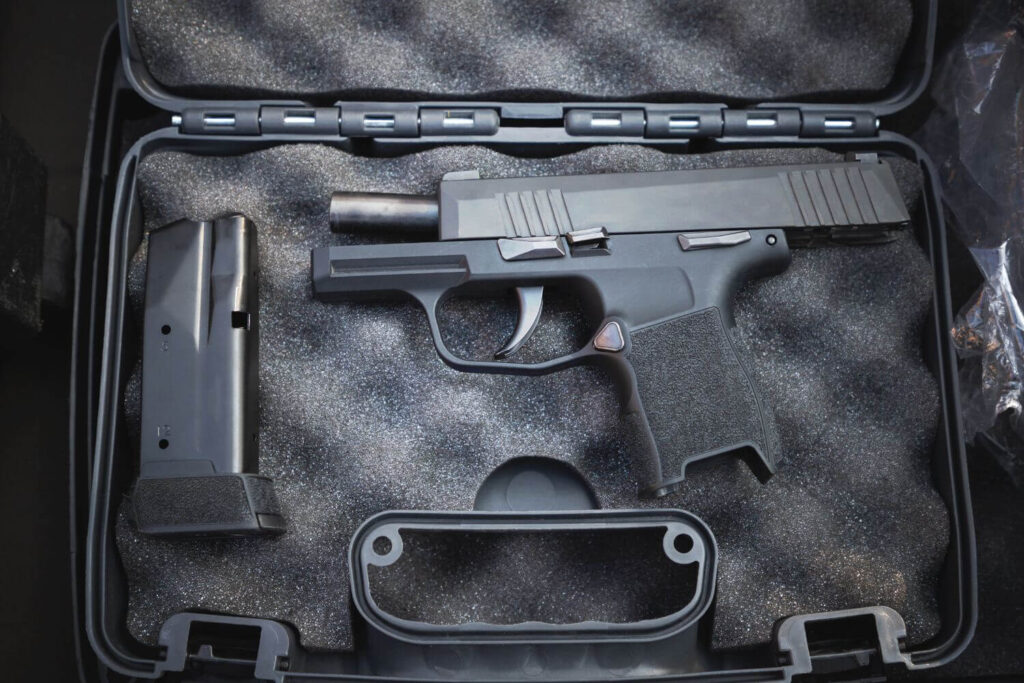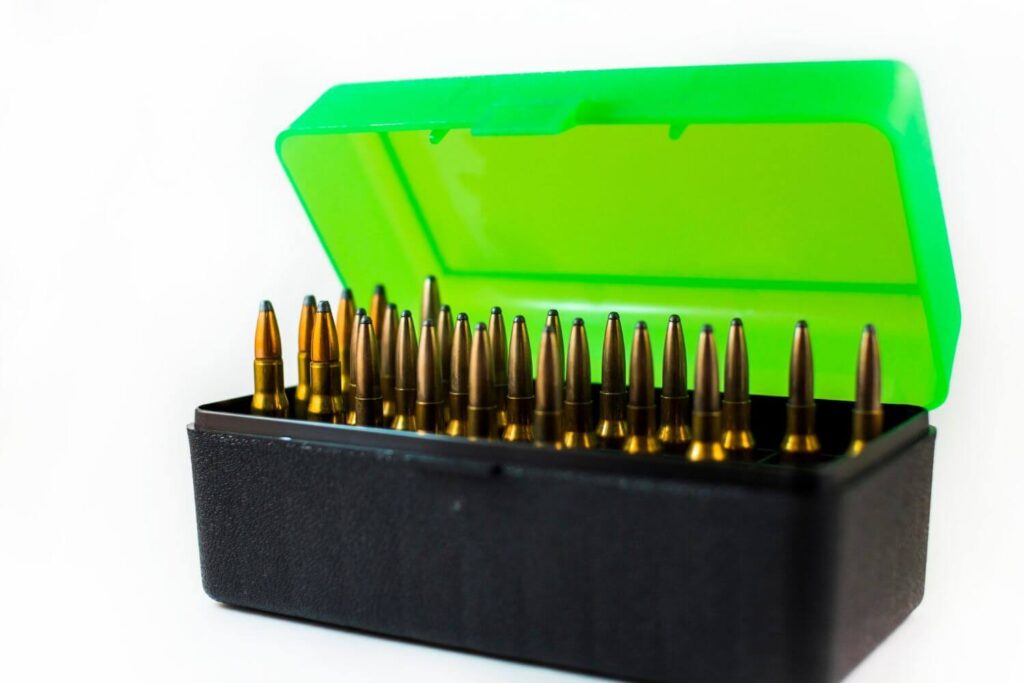


Safe gun transportation protects those around you from accidents, your firearms from theft, and you from increased legal liability. Whether you’re flying with your guns on a hunting vacation or visiting a Midwest Arms Collector event to buy, sell, or trade firearms, you need to know and follow both gun laws and the basic rules of firearms safety. So before you load your gun into the car or your suitcase, take some time to brush up on the best practices of traveling with your favorite gun.
It’s your responsibility to know the gun laws where you live, where you’re going, and in every jurisdiction you’re passing through. While that sounds like a lot to keep in mind, it doesn’t have to be. The easiest way to make sure you don’t run afoul of the legal system is to adopt the strictest gun transportation requirements you’ll be subjected to. The last thing you want is to have your vacation or hunting trip cut short because your gun has been confiscated or you’ve been arrested for a firearms violation while traveling.
Researching gun transportation laws is easy, thanks to the internet and grassroots initiatives that push state and federal governments to make regulations both transparent and available to the general public. A simple web search for the transportation rules of the state you’re travelling in or to will provide a wide range of resources. Look for links from state departments of public safety or the state police. Alternatively, reliable third parties, like the NRA, can provide reliable information.

If you’re flying with guns, go straight to the horse’s mouth and check the TSA guidelines as well as the regulations for the states you’re leaving from and traveling to. Your airline’s website will also have resources for properly packing your firearms for flight and notifying them you’ll be flying with a gun in your checked baggage.
While we can’t possibly cover every gun transportation rule in the ever-changing patchwork of gun regulation we live under, we’re going to focus on the actionable steps you should take at a minimum to make sure the guns in your cars, trucks, and SUVs are being carried safely.
A loaded gun that isn’t under your immediate control is always a threat factor. When transporting guns (as opposed to carrying a weapon legally while you happen to be traveling), the firearm will not be under your immediate direct control. Make sure the weapon is unloaded and verified safe before packing or storing it for transport.
Trigger locks and chain locks help prevent weapons from being fired either intentionally or unintentionally. Trigger locks fit over the trigger guard and block access to the trigger, although they may still allow a firearm to be loaded or a round to be chambered. To better secure your firearms and reduce the risk of loading and increased liability potential, opt for chain locks that pass through the gun’s barrel and chamber or magazine well and chamber. These visibly secure the weapon in an unloaded state.
Firearms are valuable, making them a sizeable investment for gun owners and a tempting target for thieves. They’re also dangerous tools that should be kept away from curious fingers. Secure your unloaded and locked firearms in a padded hard-shell case. The padding helps keep the weapon safe from bumps and drops while helping moderate an intemperate environment if you’re traveling through rapidly changing temperature zones, dusty areas, or areas with higher humidity. Waterproof cases are also available for gun transportation while boating or shoreside travel, where the potential for moisture damage runs higher.
We all remember the old days when rusty trucks rumbled down the road with loaded rifle racks. Times have changed. Store your cases out of sight, either in the vehicle’s trunk, truck toolbox, or locked camper shell. Many states require they not be accessible to the driver, so if you have an open truck bed, placing them under the back seat may be acceptable if there’s room (verify local ordinances first). Most gun cases will have an attachment point to run a cable lock through the case to a point in your vehicle, preventing anyone from simply gaining access and walking off with your gun cases.

Ammunition should be transported inside magazines or ammunition boxes in separate locked and secured cases. Loose ammunition is a hazard, so if you have a trip coming up, save an ammo box from the range. When flying with guns and depending on gun transportation laws while driving, you may be allowed to store boxed ammo inside the gun’s case if there’s room, but a separate case can help shield you from accusations that it would be too easy to load the weapon.
Make sure you know your route, have any necessary travel or ownership documents readily available, and have contacted travel companies and hotels about their firearms guidelines. Never leave your guns in the car for an extended and unsupervised duration, like overnight in a hotel parking lot. When they are left alone in a vehicle, such as for meal stops, park in well-lit areas where you can see your vehicle and respond if there’s any cause for concern. Prior planning helps prevent any surprises and makes it easier to ensure your guns are protected.
Under ideal circumstances, the only person who will know you’re transporting guns is you and possibly your fellow passengers. Otherwise, keep it to yourself to keep them safe. That means not talking about them during your breakfast stop, moving them to and from hotel rooms efficiently without lollygagging, and not plastering your vehicle’s window with every gun sticker you can find. There are thieves who look specifically for guns in cars, and while we agree with the sentiment, “Molon Labe” can look an awful lot like an invitation on an unattended truck’s window.
Take special care when traveling internationally, and don’t make assumptions about laws at your destination or connecting countries. The Second Amendment has no protections for us outside the United States, and while the local consulate office can try to help, you’re subject to the laws of the country you’re in. This can include not only firearms and ammunition, as multiple vacationers have found out when visiting the Caribbean island nation of Turks and Caicos. If you plan to travel internationally, double-check your luggage, and we recommend working closely with your local host or a local attorney to ensure you and your firearms are safe.
Gun safety is always a priority. That’s why when you visit your local MAC Shows event, all weapons are inspected and made safe as you walk through the front doors. We want all of our attendees and vendors to have a safe, welcoming experience from the time they leave their homes until the time they head home with new guns in their cars. Visit our gun show calendar and make your gun transportation plans to visit the next MAC Shows Gun Show at a community near (or far from) you.
Subscribe to our newsletter for exclusive updates, offers, and insights. Be the first to know about upcoming shows and special events.

Text STCHARLES to 620-205-5776 to get $3 off your ticket to the St. Charles Gun Show when you buy your tickets online!